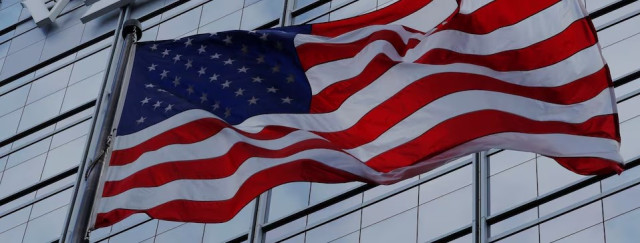The US granted citizenship to 34,289 Nigerians between 2020 and 2022, according to the latest Naturalizations Annual Flow Report from the Department of Homeland Security.
Compiled by the Office of Homeland Security Statistics, the report's data comes from Form N-400, the application that prospective Americans must fill out, as well as from electronic case files used by USCIS to monitor each applicant from fingerprinting to the oath ceremony.
Report indicates that 8,930 Nigerians became naturalized citizens between October 2019 and September 2020.
During that time frame, there was an 11-week shutdown due to COVID-19 from March 18 to June 4, 2020 that halted all oath ceremonies temporarily.
In the following year, 10,921 Nigerians received citizenship as USCIS worked through its backlog caused by the pandemic. In 2022, a record 14,438 Nigerians took the oath, representing a 32% increase from the previous year.
The total of 34,289 new Nigerian-American citizens constitutes approximately three percent of all 248,553 Africans who naturalized during that time.
According to demographic data, only Nigeria and the Democratic Republic of Congo appeared in the global top-30 for naturalizations by country of birth.
The DRC’s naturalizations nearly doubled in 2022, reaching around 6,000, while applications from other African nations like Ethiopia, Ghana, and Kenya were grouped into the “All other countries” category.
Overall, naturalizations for Africans increased by 40% between 2021 and 2022, marking the highest regional growth.
In total, Mexico accounted for 326,237 naturalizations over the three years, followed by India with 171,114, which rose steadily from 48,111 in 2020 to 65,960 in 2022.
The Philippines contributed 135,313, Cuba 126,203, the Dominican Republic 81,303, Vietnam 80,177, China 82,376, Jamaica 57,145, El Salvador 52,399, and Colombia 48,396. Collectively, these ten countries accounted for almost half of the 2.4 million naturalizations completed during the three years.
USCIS emphasizes that application volumes and approvals may not align perfectly; some petitions may face denial, while others may be processed in subsequent fiscal years.
The naturalization of foreign nationals in the US follows the Immigration and Nationality Act of 1952, requiring USCIS to oversee applicant screenings, conduct FBI name checks and fingerprint searches, evaluate five years of residency (three if married to a US citizen), and test English and civics knowledge.
The Department specifies that applicants must meet statutory and regulatory conditions, complete Form N-400, and provide suitable documentation. USCIS carries out thorough investigations and examinations of all applicants, including background checks, interviews, and testing for English and civics proficiency.
After obtaining approval, USCIS schedules applicants for an oath ceremony led by a judge or authorized official. To qualify for naturalization, applicants need to be at least 18 when submitting Form N-400, prove they have been permanent residents for at least five years, and show continuous residency in the US during that time.
Historically, European immigrants dominated US naturalizations, but the 1965 amendments to the INA, which eliminated the national-origins quota, opened doors to immigrants from Asia and Africa.
The report highlights that while Asia surpassed Europe in the 1970s, Africans have recently shown the most significant growth, averaging six years of permanent-resident status before naturalization, one year faster than the global average.
In 2022, the number of US naturalizations surpassed 969,000, marking a 19% increase from 814,000 in 2021 and a 34% uptick from the 2010-2020 average of 721,000. With the agency now processing cases more quickly than they come in, Nigerian applicants who submitted their files after October 2024 could possibly take the oath as early as the following summer.




















